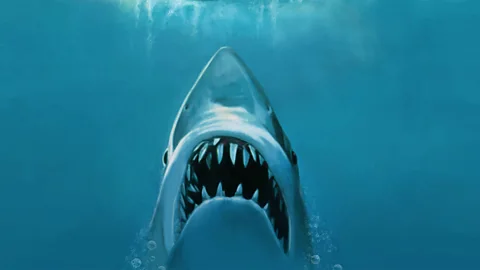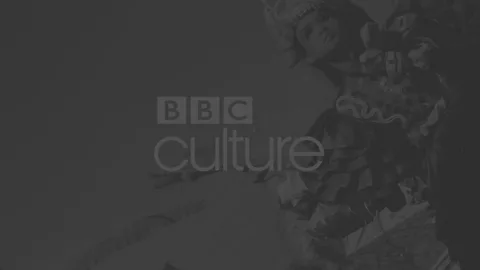‘Jaws is no horror movie – it’s actually a comedy’
 Alamy
AlamySteven Spielberg’s Jaws made people terrified of the water. But looking back 40 years on, Nicholas Barber finds the film more funny than frightening.
“The screams started and they never stopped.” That’s what producer David Brown re from an early test screening of Steven Spielberg’s Jaws, 40 years ago. He knew immediately it would be a great white shark-sized hit. Contemporary reviews called Jaws “nerve-frying” and a “scare machine that works with computer-like precision”. In the decades that followed, it has taken up residence on lists of ‘the most terrifying films ever made’, and its devoted fans like to boast about how severely it traumatised their childhood selves. Kevin Smith, writer-director of Clerks and Chasing Amy, told The Observer that after he saw Jaws, he wasn’t just frightened of paddling in the sea, he was frightened of sitting on the toilet: “The logic was, there’s water in the toilet [so] sharks swim in toilets.”
But here’s the thing. When you watch Jaws as a grown-up, in 2015, you may well find yourself marvelling at its quotable dialogue, smiling at the uniformly fine performances, humming along to John Williams’ theme music and applauding Spielberg’s genius at suggesting the shark without showing it. But chances are you won’t be frightened. That’s not to say that you won’t be tense while you’re waiting for the next sighting of a dorsal fin, or that you won’t jump a few millimetres when that ominous black triangle glides into view. But, speaking as one of the most easily-spooked and squeamish cinema-goers alive, even I can see why the ratings board of the Motion Picture Association of America gave Jaws a PG rating, allowing young children to see it, rather than the more restrictive R. Today, the film is more likely to prompt squeals of delight than screams of terror.

If anything, Jaws now works better as a comedy than as a horror movie. Actually, it works better as two comedies, one after the other. The first is about a big-city cop in an eccentric island community – a fish-out-of-water comedy, in other words. The second is about three mismatched buddies messing about on a boat.
Sun, surf and screams
The first of these comedies is set in the picket-fenced New England beach resort of Amity, where an aquaphobic New Yorker, Brody (Roy Scheider), has recently been appointed Chief of Police. When the shredded remains of a skinny-dipping tourist wash up on the shore, Brody fears that a man-eating shark is on the prowl. No one else is quite as concerned. The media flock to the area, the locals fall over each other to catch the shark and claim a $3,000 bounty and the buffoonish mayor’s only worry is how the publicity will affect the island’s 4th of July takings. At this point, Jaws is a bustling, rambunctious satire of small-town incompetence, while Carl Gottlieb’s crackling banter is worthy of the Marx Brothers. And when Richard Dreyfuss shows up as Hooper, a nervy, wisecracking Brooklynite, many viewers will be reminded of another big-screen comedian. Pauline Kael, the legendary film critic, declared that Jaws is “funny in a Woody Allen way”.

The shark attacks themselves are more quaint than stomach-turning. In part, this is because we have been desensitised by four decades of increasingly gruesome films, and in part it’s because today’s horror movie-makers, with digital editing and sound-mixing at their disposal, have learnt to fine-tune every scare to a degree that simply wasn’t possible in 1975. The silliness of the rubber shark is a factor, too. But the main reason why Jaws isn’t all that terrifying is that Spielberg didn’t want it to be.
Take, for example, the sequence in which two old-timers attach one end of a chain to a rickety wooden pier and the other end to a t of meat, which they then toss into the water. The shark takes the bait, but the unseen monster is powerful enough to tear the pier in half, depositing one of the men in the sea. There’s a nailbiting few seconds while he swims to safety, but, by today’s standards, it’s all over remarkably quickly. Rather than milking the suspense for all its worth, Spielberg lets the man get back to dry land in no time, and even gives him a punchline: “Can we go home now?” Spielberg may be keen to frighten us, but not too much.

Fins and grins
The second half of Jaws is even more fun than the first. Determined to deal with the tourist-chomping menace once and for all, Brody goes to sea with Hooper and Quint (Robert Shaw), a grizzled war veteran. Brody’s wife asks him what she should tell their sons about the expedition. “Tell them I’m going fishing,” he replies. And that about sums it up. The remainder of the film has a laidback fishing-trip atmosphere, as the three men – far away from wives, children, holiday-makers and politicians – have the freedom to swig beer, tie knots and compare scars while Williams’s jaunty music assures us that we’re watching a rollicking maritime yarn.
 Universal
UniversalOf course, it’s not long before the shark breaks the ocean’s surface and we get to see its dagger-like teeth at last. But, again, Spielberg is careful to lessen the impact of this shocking reveal, cutting away from the gaping maw almost before we’ve ed it. What we’re shown instead is a comic reaction shot of Brody hopping to his feet. His eyes are wide, but his cigarette stays in his mouth. He then backs into the ship’s bridge and mutters his most famous line – a line which Scheider improvised on-set: “You’re gonna need a bigger boat.” The audience’s screams are drowned out by its laughter.

What Jaws makes plain is that even when Spielberg was crafting a thriller about a 25-foot-long great white with a taste for human flesh, he had the crowdpleasing instincts of a family entertainer rather than the sadistic gusto of a horror puppet-master. It’s thanks to these instincts that Jaws became one of the most lucrative and acclaimed movies ever made, and Spielberg became lauded as the master of mainstream cinema. In some respects, though, the film’s flippant tone had a corrosive effect: no earthquake or alien invasion in a Hollywood blockbuster is complete, nowadays, without a smirking one-liner from Dwayne Johnson or Robert Downey Jr. But in Jaws, the combination of pulse-pounding excitement and humanising humour still seems fresh. And it was a combination which Spielberg would employ again and again. Four years after his first record-breaking hit, he attempted his only full-on comedy, the unsuccessful 1941, but on his next project he returned to the scream-laugh formula that made Jaws a classic. The result was Raiders of the Lost Ark, and the rest is history.
